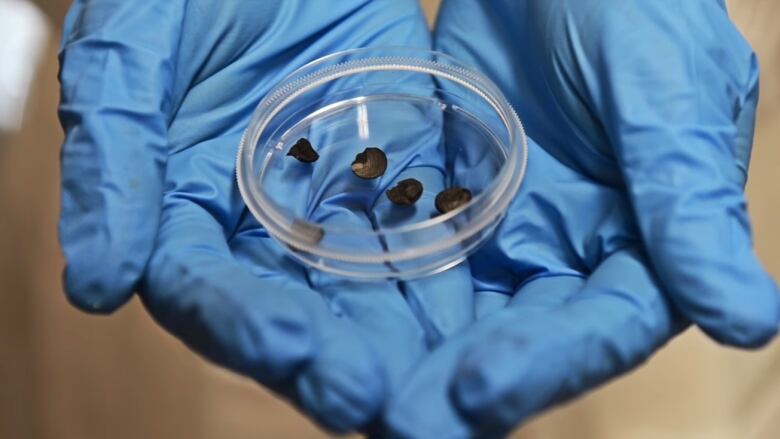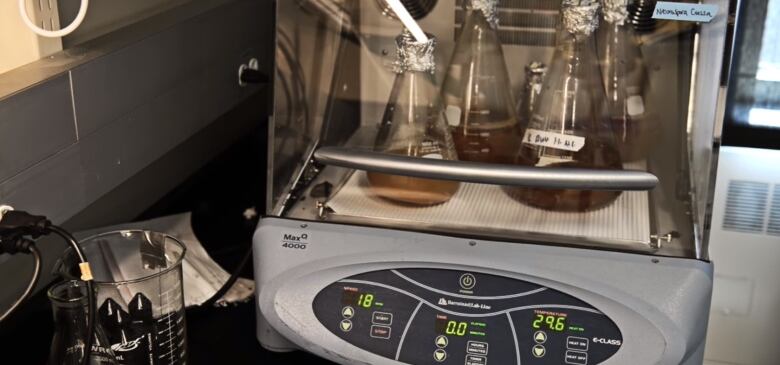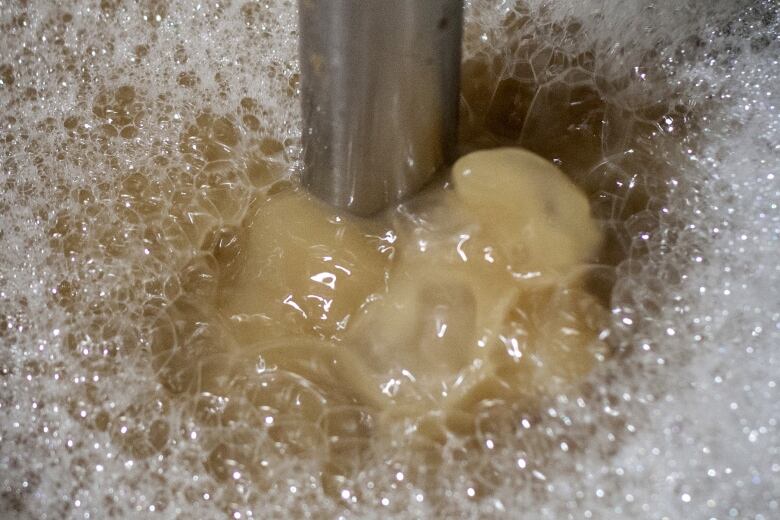Hopped up batteries: engineers turn craft beer waste into energy
Students in the U.S. manage to turn beer waste into batteries what could this mean for B.C.?

Sweet, hoppy,floral,or elegant there's a lot of terms to describe adelicious craft beer. But some critics have added "extremely wasteful"to the list.
It can take up to seven litres of water to produce just one litre of craft beer. And if the heavywater usage wasn't enough, there's also a tremendous amount of wastewater produced by the process.
The water is loaded with organic bi-products including sugars and yeast that can be particularly damaging tomunicipal sewer systems,especially in cities with booming craft beer industrieslike Vancouver.
But a new development from the University of Colorado in Boulder has opened up a new door for what can be done with the waste material by keeping it out of the sewers and turning it into energy.
Hopped up batteries
"The brewing process is really water intensive, which results in this highly contaminated wastewater," said Jason Ren, an associate professor at the university.
Ren and a small group of graduate engineering students wanted to create something sustainable and useful out of the material, so they decided to take a stab at creating a naturally-derived battery.
"We took the wastewater from breweries because it's very high in sugar content and pretty pure," he said.
The team extracts the waste materialand uses it to createan ideal environment for a particular fungus Neurospora crassa to flourish.

Ren says when that type of fungus is carbonizedit produces a raw material that can be usedto createbattery electrodes.
Using the raw carbon composites produced from the fungus, the team was able to create a high-performing, naturally derived rechargeable lithium-ion battery, according Ren.
The process was published by theAmerican Chemical Society Journal of Applied Materials andInterfaces.And the team says it's just the beginning.

"We actually are doing some scale-ups to use it in cell phone batteries, electric cars, and other applications it's definitely scalable," he said.
The engineers have now filed apatent on the processand created a startup called Emergy that's aiming tocommercialisethe technology.
The team says the organic alternative can replace the current unsustainable materials batteries like graphite, which is mined.
- B.C. launches its 'largest marketing campaign' for craft beer
- Gulf Island Brewery becomes first unionized craft brewery in B.C
- B.C. reduces craft beer markups and cuts red tape for brewers
"People do feel good about it when they drink beer, they're making something useful," said Ren. "It's not only solving an environmental problem, but it's also solving an energy problem."
Ren says if this process was scaled up and implemented across acommunity, breweries would cut costs on wastewater disposal, and it could ease stress on sewage systems and treatment plants while providing renewable sources of energy.
Metro Vancouver's disposal problem
Darrell Mussatto,chair of the Metro VancouverUtilitiesCommittee, says the technology is a breath of fresh air in light of the craft beer industry's excessivecontributionsto regionalwater treatment plants.
"There's a lot ofby-productthat is produced when they make their beer wine and alcohol," he said. "It's quite significant."
Mussatto, who is also the mayor of North Vancouver,has been at the forefront of newly introducedbylaws that require brewers to filter their own wastewaterandpay dischargingfees for the amount of fluids they put into the system.

The bylaws went into effect after it was discovered thatunregulated brewery wastewater was beginning tocorrode Metro Vancouver's sewage systems.
He says the organic waste some of which is still seeping into the system, despite the new rules presents valuable opportunities for the future.
"Metro Vancouver does do a tremendous amount of research in this area," he said. "It's just a matter of time before that can be turned into something like biofuel," he said.
"There's a whole lot of things that we need to continue to research on to make them more sustainable."
Follow Jon Hernandez on Twitter @jonvhernandez












_(720p).jpg)


 OFFICIAL HD MUSIC VIDEO.jpg)
.jpg)



























































































